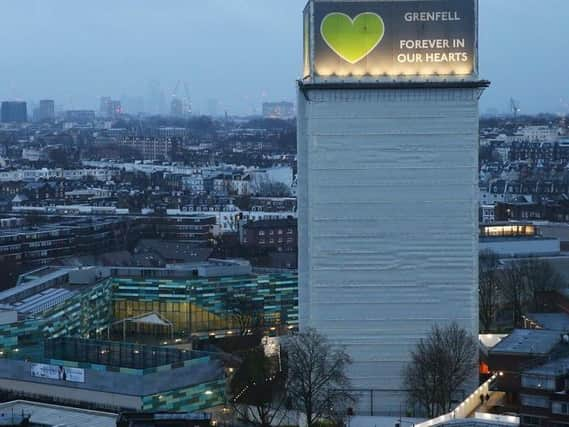Government ignoring 'multitude of defects' in high rise flats and putting lives at risk, Yorkshire MP warns


Clive Betts who is also chair of Parliament’s Housing, Communities and Local Government Select Committee, was one of several MPs to criticise Ministers during the Queen’s Speech debate on housing.
Mr Betts accused Housing Secretary Robert Jenrick of ignoring the committee’s report six months ago on how the Building Safety Bill can be enhanced to protect leaseholders – many of whom are now facing five figures bill in a mounting controversy over whether they, or developers, are liable for cladding costs.“This is a Building Safety Bill, not a cladding removal Bill, and there is a danger that we see building safety simply in terms of removing dangerous cladding,” said Mr Betts who represents Sheffield South East.
Advertisement
Hide AdAdvertisement
Hide Ad“It is absolutely important that that is done, particularly the aluminium composite material cladding, but also the other forms of cladding as well.
“We know that there are a multitude of defects in buildings that can cause fire problems: faulty balconies; faulty fire doors; missing fire breaks; faulty installations and so on, all of which make buildings unsafe.
“We could get a situation where the Government pay for the cladding to come off, but it still leaves the buildings unsafe, and leaseholders cannot afford the rest of the costs.”
Mr Betts said he had met leaseholders “worried sick that they are living in buildings that are unsafe, but that they do not have the financial ability to pay for the defects to be dealt with”.
Advertisement
Hide AdAdvertisement
Hide AdHe added: “We, as a Committee, have therefore recommended a comprehensive building safety fund to cover all fire safety defects. It should be paid for initially by the Government, with a major contribution from industry, including the providers of construction products.
“Of course, developers should be held to account wherever possible, but in the end, there needs to be certainty for homeowners who simply cannot afford to pay that the Government will get the problem resolved for them. That is the requirement that we have asked for.”
This was echoed by Leeds central MP Hilary Benn who said his constituents “have run out of patience and are running out of time”.
“As their lives remain on hold, their flats remain worthless, they face monthly bills for waking watches and insurance premiums, and the demands are starting to arrive for sums of money that they simply do not have,” he added.
Advertisement
Hide AdAdvertisement
Hide AdHowever Mr Jenrick insisted that the Building Safety Bill will “strengthen accountability and responsibility across the sector, with clear duties and responsibilities for building owners and managers”.
Accusing Labour of having no plans of its own, he said the legislation “also supports the removal of unsafe cladding, with a new levy on developers seeking permission to develop certain high-rise buildings”
He added that Chancellor Rishi Sunak expects to raise at least £2bn “from a new tax on the residential property development sector to support this work, ensuring that the industry pays a fair share towards the cost of the situation it contributed to”.
Comment Guidelines
National World encourages reader discussion on our stories. User feedback, insights and back-and-forth exchanges add a rich layer of context to reporting. Please review our Community Guidelines before commenting.